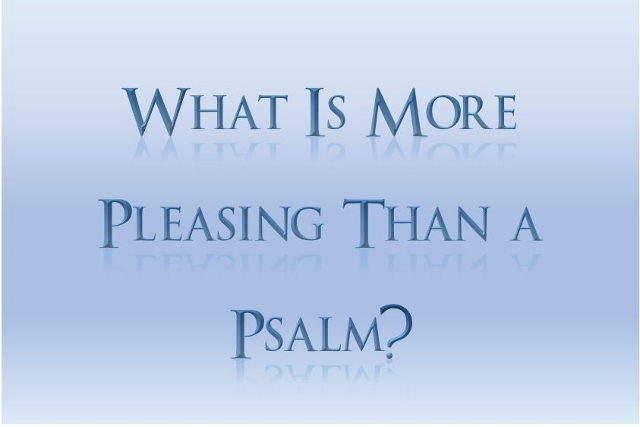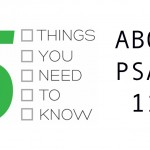Although the whole of Scripture breathes God’s grace upon us, this is especially true of that delightful book, the book of the psalms. Moses, when he related the deeds of the patriarchs, did so in a plain and unadorned style. But when he had miraculously led the people of Israel across the Red Sea, when …
Although the whole of Scripture breathes God’s grace upon us, this is especially true of that delightful book, the book of the psalms. Moses, when he related the deeds of the patriarchs, did so in a plain and unadorned style. But when he had miraculously led the people of Israel across the Red Sea, when he had seen King Pharaoh drowned with all his army, he transcended his own skills (just as the miracle had transcended his own powers) and he sang a triumphal song to the Lord. Miriam the prophetess herself took up a timbrel and led the others in the refrain: Sing to the Lord: he has covered himself in glory, horse and rider he has thrown into the sea.
GYMNASIUM FOR THE SOUL, STADIUM OF VIRTUE
History instructs us, the law teaches us, prophecy foretells, correction punishes, morality persuades; but the book of psalms goes further than all these. It is medicine for our spiritual health. Whoever reads it will find in it a medicine to cure the wounds caused by his own particular passions. Whoever studies it deeply will find it a kind of gymnasium open for all souls to use, where the different psalms are like different exercises set out before him. In that gymnasium, in that stadium of virtue, he can choose the exercises that will train him best to win the victor’s crown.
HISTORY & LAW IN THE PSALMS
If someone wants to study the deeds of our ancestors and imitate the best of them, he can find a single psalm that contains the whole of their history, a complete treasury of past memories in just one short reading. If someone wants to study the law and find out what gives it its force (it is the bond of love, for whoever loves his neighbor has fulfilled the law) let him read in the psalms how love led one man to undergo great dangers to wipe out the shame of his entire people; and this triumph of virtue will lead him to recognize the great things that love can do.
THE PSALMS AS A SONG
What is more pleasing than a psalm? David expresses it well: Praise the Lord, for a song of praise is good: let there be praise of our God with gladness and grace. Yes, a psalm is a blessing on the lips of the people, a hymn in praise of God, the assembly’s homage, a general acclamation, a word that speaks for all, the voice of the Church, a confession of faith in song. It is the voice of complete assent, the joy of freedom, a cry of happiness, the echo of gladness. It soothes the temper, distracts from care, and lightens the burden of sorrow. It is a source of security at night, a lesson in wisdom by day. It is a shield when we are afraid, a celebration of holiness, a vision of serenity, a promise of peace and harmony. It is like a lyre, evoking harmony from a blend of notes. Day begins to the music of a psalm. Day closes to the echo of a psalm.
In a psalm, instruction vies with beauty. We sing for pleasure. We learn for our profit. What experience is not covered by a reading of the psalms? I come across the words: A song for the beloved, and I am aflame with desire for God’s love. I go through God’s revelation in all its beauty, the intimations of resurrection, the gifts of his promise. I learn to avoid sin. I see my mistake in feeling ashamed of repentance for my sins.
What is a psalm but a musical instrument to give expression to all the virtues? The psalmist of old used it, with the aid of the Holy Spirit, to make earth re-echo the music of heaven. He used the dead gut of strings to create harmony from a variety of notes, in order to send up to heaven the song of God’s praise. In doing so he taught us that we must first die to sin, and then create in our lives on earth a harmony through virtuous deeds, if the grace of our devotion is to reach up to the Lord.
David thus taught us that we must sing an interior song of praise, like Saint Paul, who tells us: shall pray in spirit, and also with understanding; I shall sing in spirit, and also with understanding. We must fashion our lives and shape our actions in the light of the things that are above. We must not allow pleasure to awaken bodily passions, which weigh our soul down instead of freeing it. The holy prophet told us that his songs of praise were to celebrate the freeing of his soul, when he said: I shall sing to you, God, on the Lyre, holy one of Israel; my lips will rejoice when I have sung to you, and my soul also, which you have set free.
Join Us: Sign Up Today!
Tags:











